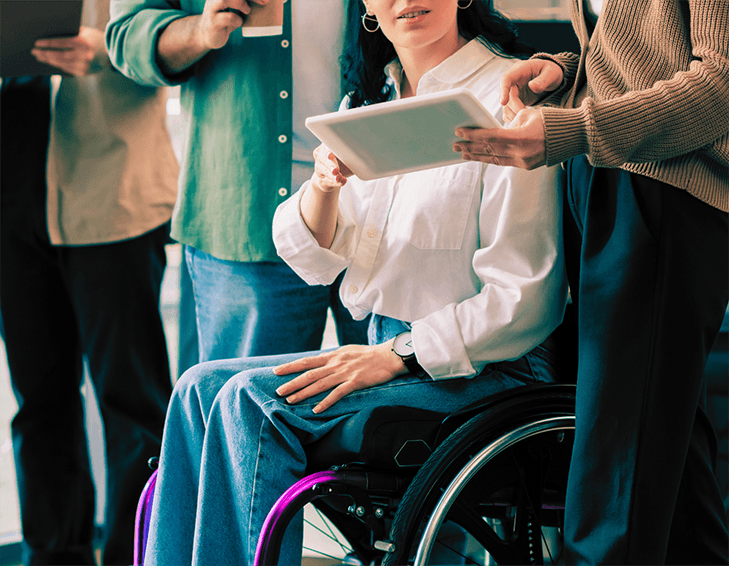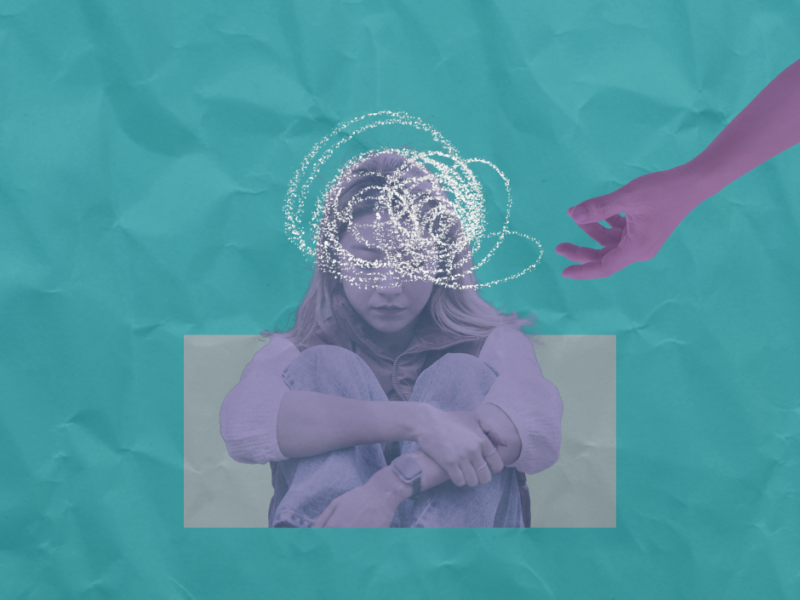How their skills and perspectives can benefit the public.
This year, the United Nations (UN) said that we can advance towards a future that ensures “sustainable peace and inclusive development for all.” But, in order to get to it, we first must learn to welcome the leadership of those who endure many challenges because we’re not there yet.
The organization was referring to persons with disabilities (PWDs.)
According to estimates by the World Health Organization (WHO,) around 1.3 billion people have significant disabilities which impair or interfere with their capacity to do certain tasks. All over the world, they tend to face barriers due to discriminatory behavior, the lack of opportunities and policies that tend to overlook their needs by concentrating on the realities faced by the greater majority. The UN said, however, that in spite of the challenges they face, a number of PWDs have made significant contributions to society. And among them were PWDs who found themselves in leadership roles.
In a number of case studies presented by the organization in its website, PWD leaders have used the learnings, the drive and the experiences acquired because of their disabilities to present effective solutions to various problems especially ones concerning people like them. To exclude them in policy making is to therefore elude possibly potent ideas which can benefit a lot of people.
At the moment, the UN recognizes many efforts done by PWDs and they’re calling on the world’s decisionmakers to welcome more.
“Over the years, persons with disabilities and organizations representing them have led important community-driven efforts,” the group said. These initiatives tend to tap into the perspectives of PWDs to advocate for the rights and well-being of those with disabilities. But on a number of occasions, they also tend to promote inclusive development that can be beneficial for people who have none.
Among the examples the group turned to on their website were the various youth leaders with disabilities—they whose efforts prove that PWDs can be highly valuable members of society. Their actions set in motion systemic improvements that benefitted their respective communities. In some cases, even people who have no disabilities had something to gain from their work.
For instance, there was Shirley Liu, a deaf person from Australia who campaigned for information that is accessible for people whose first language is Auslan (Australian Sign Language.) She was inspired to act because of the difficulties PWDs encountered during the bushfires of 2020; a reality that took place because they didn’t have adequate access to proper information.
Because of Liu’s work, media organizations became more attentive to the needs of the public. It also ensured that interpreters were present for important announcements like the ones given during the time of the coronavirus disease 2019 pandemic. This better ensured that the deaf community of Australia were aware of the situation and that they knew how to protect themselves and cooperate with measures to curb the spread of the virus.
Its stories like this that the UN’s been sharing in their website.
However, the group isn’t the only globally recognized body vocal about this. Other organizations—particularly private ones—are also openly championing inclusivity. Among them is financial services firm JPMOrgan and Chase.
In 2022, Jim Sinocchi, head of the company’s Global Office for Disability Inclusion, discussed the importance of involving people with disabilities.
“We need to capitalize on ability—and look beyond disability,” he wrote for the group’s website.
Sinocchi who lives much of his life in a wheelchair (because he is paralyzed from the chest down) is a leader with disability himself. But in his write up, he focused on other people in the company.
For example: business analyst Dana Randal. Deaf since birth, it was Randal who proposed an idea which drove the development of a first for the firm: a banking branch fully integrated with technology that allows deaf and hard-of-hearing customers to do business. This was put up near Gallaudet University, an institution known for providing higher learning for deaf students in the U.S.
“By using both specific and general approaches,” the UN said, “[PWDs] help improve universal access to essential services and resources.”
This is why the group is advocating for more people with disabilities to be given a chance at leadership roles. It is also the reason behind its focus for this year’s celebration of International Day of Persons with Disabilities.
For 2024, the UN’s theme commemorating the date is “Amplifying the Leadership of Persons with Disabilities for an Inclusive and Sustainable Future.” And, it was selected to highlight the necessity of PWDs in policy making and governance.
“The leadership of PWDs is based on the principle of “nothing about us without us,” the organization said. “This phrase highlights the crucial need for their participation, representation and inclusion. It emphasizes the importance of their active involvement in decision-making processes to influence the conditions affecting their lives, ensuring that policies and initiatives consider their viewpoints and priorities.”
According to the WHO people with disabilities currently endure a number of challenges.
“[PWDs] have twice the risk of developing conditions such as depression, asthma, diabetes, stroke, obesity or poor oral health,” WHO said. The group added that those with disabilities also tend face many health inequities; they also find inaccessible and unaffordable transportation 15 times more difficult than those without disabilities and they “die up to 20 years earlier than those without disabilities.”
In other words, life can be difficult for many of them due to a dearth in sustainability and inclusivity.
But the UN highlights that this can be overcome with the help of their leadership. It also stressed that if the world succeeds in being more inclusive and sustainable, PWDs are not the only ones whose lives that will improve.



